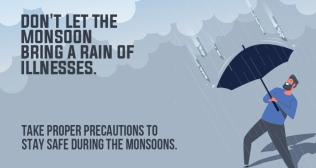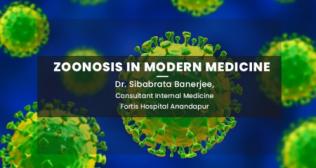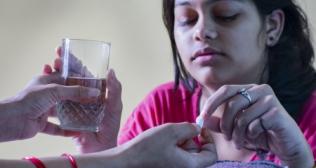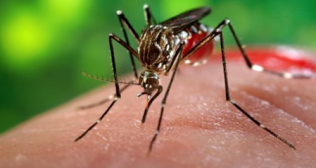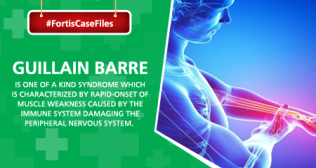
Internal Medicine
Fight The Bites ? Vector Borne Diseases
Fight The Bites ? Vector Borne Diseases Apr 05, 2014
 Small Bite, Big Threat – World Health Day 2014
An insect bite can be more than just annoying. It might cause a serious disease. Vector borne diseases are one of the most common and deadly diseases in the world today. These are caused by infectious microbes transmitted to people through insects such as mosquitoes, fleas, lice, biting flies, and other bugs.
The most deadly vector borne disease, Malaria, kills over 1.2 million people annually whereas Dengue fever, together with associated dengue haemorrhagic fever (DHF), is the world's fastest growing vector borne disease. Leishmaniasis is the second largest parasitic killer in the world, and is caused by bites from female phlebotomine sandflies. And have you heard about Filaria? It’s most severe form is called Elephantiasis, which causes one’s leg to swell up like an Elephant’s leg!
Some researchers have attributed climate change to be the biggest cause of rising levels of vector diseases, as changes in the climate influence their life cycle and breeding conditions. While the governments of developed and developing nations are finding ways to combat these deadly diseases, we must, on our part, be aware of the risk factors and preventive measures so as to minimize the exposure. Though for most of the diseases, treatment is available, but prevention is always better than cure. Here are some simple measures listed down which everyone must be aware of.
PREVENTIVE MEASURES:
Small Bite, Big Threat – World Health Day 2014
An insect bite can be more than just annoying. It might cause a serious disease. Vector borne diseases are one of the most common and deadly diseases in the world today. These are caused by infectious microbes transmitted to people through insects such as mosquitoes, fleas, lice, biting flies, and other bugs.
The most deadly vector borne disease, Malaria, kills over 1.2 million people annually whereas Dengue fever, together with associated dengue haemorrhagic fever (DHF), is the world's fastest growing vector borne disease. Leishmaniasis is the second largest parasitic killer in the world, and is caused by bites from female phlebotomine sandflies. And have you heard about Filaria? It’s most severe form is called Elephantiasis, which causes one’s leg to swell up like an Elephant’s leg!
Some researchers have attributed climate change to be the biggest cause of rising levels of vector diseases, as changes in the climate influence their life cycle and breeding conditions. While the governments of developed and developing nations are finding ways to combat these deadly diseases, we must, on our part, be aware of the risk factors and preventive measures so as to minimize the exposure. Though for most of the diseases, treatment is available, but prevention is always better than cure. Here are some simple measures listed down which everyone must be aware of.
PREVENTIVE MEASURES:
- Use Insect Repellants – These repellants temporarily keep hungry mosquitoes from identifying you as a food source. Most insect repellants contain one of these three common ingredients – DEET, picaridin, oil of lemon eucalyptus. The higher the concentration of DEET or picardin in a product, the longer its protection will last. However, while applying a repellant, some precautions must be taken:
- Apply the repellant directly to the exposed skin
- Don’t apply on cuts, grazes or broken/irritated skin
- Don’t swallow the repellant
- Avoid spraying directly onto your face to stop repellent getting into your eyes, nose and mouth
- Use a cream/lotion or spray repellent on your hands and then rub onto your face
- Re-apply regularly, especially after swimming and in hot, humid countries, as sweating reduces effectiveness
- If you are using sunscreen, put it on first and then apply the repellant.
- Wash your hands after applying.
- Clothing
- Wear loose fitted, light coloured clothes (insects can reach skin through tight clothing), long trousers and long sleeves. Don’t move around barefoot.
- Malaria mosquitoes are most active after dark, so it’s important to cover up in the evenings in malaria risk regions.
- In tick-infested areas, avoid shorts/skirts and tuck trousers into socks and wear closed shoes instead of sandals to stop ticks crawling up your legs or biting your feet.
- Many insects can bite through thin clothing, so spray them with an insecticide or repellent (such as permethrin - an insecticide that kills insects on contact) but never use it directly on your skin.
- Bed Nets: When accommodations are not adequately screened or air conditioned, bed nets are essential to provide protection and to reduce discomfort from the mosquito bites. If the net doesn’t reach the floor, tuck it along the corners of bed to prevent mosquitoes from getting in.
- Be aware of peak times and exposures: If you live or are travelling to a place where a particular vector disease is more common, you must get all the information regarding the peak biting activity of those vectors. For example, peak biting activity of vectors for Dengue and Chikungunya is during daylight hours. Whereas vectors of other diseases, such as Malaria, are more active during Twilight periods or after dark. Location also matters; ticks are often found in grasses and other vegetated areas.
- Reduce mosquitoes around your home: Mosquitoes need standing water to breed. To make sure that your are is mosquito free, you must take the following measures:
- Unclog roof gutters.
- Empty swimming pools at least once a week and preferably more often.
- Change water in bird-baths at least weekly.
- Get rid of old tires in your yard.
- Empty outdoor flower pots regularly or store them upside down so that they can't collect water.
- Drain your fire pit if water collects there.
- High fever
- Chills
- Muscle ache
- Chronic Fatigue
- Joint pain
- Skin inflammation
- Weakening of the immune system
- Haemorrhagic manifestation of fever







